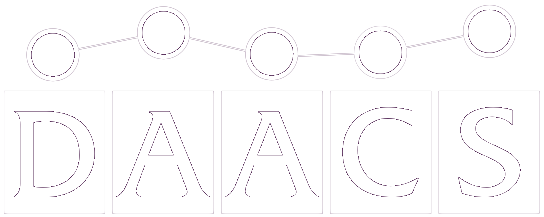Self-Regulated Learning
The self-regulated learning (SRL) assessment was development by the DAACS team and the psychometrics were published in Lui et al (2018). It is comprised of self-report Likert itemms. The SRL assessment was updated in 2022 to expand on self-efficacy to include self-efficacy for mathematics, reading, and writing. Below are the items from the current version of the assessment.
- I think of several ways to solve a problem and choose the best one.
- I think about what I really need to learn before I begin a task.
- I ask myself questions about assigned readings before I begin.
- I think about the best ways to complete assignments before I begin them.
- When I study for a test, I think about the types of questions that might be on it.
- I ask myself periodically if I am meeting my goals.
- I find myself analyzing the usefulness of my study strategies while I study.
- I ask myself questions about how well I am doing while I am learning something new.
- I consider several alternatives to a problem before I answer.
- I find myself pausing regularly to check my comprehension.
- I ask myself if what I’m reading is related to what I already know.
- I ask myself if I learned as much as I could have once I finish a task.
- I ask myself how well I accomplished my goals once I’m finished.
- I summarize what I’ve learned after I finish.
- During important exams, I think that I am doing awful or that I may fail.
- During important exams, I cannot remember material that I knew before the exam.
- The closer I am to a major exam, the harder it is for me to concentrate on the material.
- When I study for my exams, I worry that I will not remember the material on the exam.
- I find coursework enjoyable.
- I want to master the things I am learning.
- What I am learning is relevant to my life.
- Learning is fun for me.
- You can always change how intelligent you are.
- Your intelligence is something about you that you can’t change very much.
- You can learn new things, but you can’t really change your basic intelligence.
- No matter how much intelligence you have, you can always change it quite a bit.
- I ask others for help when I don’t understand something.
- I ask questions about things I don’t understand.
- I ask my instructor questions when I do not understand something.
- I look things up online to help me understand.
- I make sure no one disturbs me when I study.
- I try to study in a place that has no distractions (e.g., noise, people talking).
- I let people interrupt me when I am studying.
- I let electronic devices (e.g., television, cellphones) distract me when I am studying.
- When I have an upcoming test, I wait to the last minute to start studying for it.
- I pace myself while learning in order to have enough time.
- I finish all of my schoolwork before I do anything else.
- I use a calendar to organize my time to complete my schoolwork.
- When thinking about learning in math class, how CONFIDENT are you that you can effectively prepare or study for tests?
- How CONFIDENT are you that you can perform well on math exams, assuming you can use a calculator?
- How CONFIDENT are you that you can understand what most math problems are asking for?
- How CONFIDENT are you that you can keep up with the pace of instruction in a math class?
- When learning in an online course, how CONFIDENT are you that you can work effectively in peer or group activities?
- How CONFIDENT are you that you can stay focused when listening to lectures or watching course videos?
- How CONFIDENT are you that you can learn independently without immediate guidance or direction from a teacher?
- How CONFIDENT are you that you can effectively manage the required assignments and activities?
- When asked to read an assigned text, how CONFIDENT are you that you can remember the key parts of a reading passage?
- How CONFIDENT are you that you can comprehend reading material that has technical or unfamiliar vocabulary?
- How CONFIDENT are you that you can accurately summarize the main points of lengthy reading materials?
- How CONFIDENT are you that you can read assigned materials with both speed and comprehension?
- When writing for college courses, how CONFIDENT are you that you can organize your writing with a specific audience in * mind?
- How CONFIDENT are you that you can use feedback about your writing from teachers or others to improve on your writing?
- How CONFIDENT are you that you can effectively evaluate and determine on your own how to improve your writing?
- How CONFIDENT are you that you can use details and evidence to support an argument you are making in your writing?
